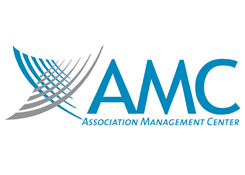
Ask the Management Team - Question of the Quarter
On a quarterly basis, we ask our executive level leaders (our Management Team) to provide their insights on a pressing question for the association industry. Here's the next question and answers from a subset of our leadership.
What would you tell a young professional who asks you “what are the one or two most important skills I should master to be successful working with volunteers?”
Jeff Engle, AMC Principal
I think one of the best things a young professional can do to be successful working with volunteers is to gain a better understanding of what it is like to be a volunteer in a professional organization. My advice is to serve as a volunteer. It’s important to serve in an organization that is run by professional staff rather than one that is completely reliant on volunteers. The goal is to have a “volunteers experience”, to learn what you, as a volunteer, can expect and appreciate about good staff support and leadership. As a volunteer, you are needed for your content knowledge, perspective, and experience. You rely on the staff for administrative support, project management, and to do everything possible so the volunteers can be successful in their assignment. Building a strong volunteer/staff relationship hinges on having a great understanding of the roles for each.
Marilyn Jansen, Director, Marketing & Business Development
You only get one chance to make a first impression so make sure your first encounter with the volunteer is positive, be friendly and dress professionally. If there is any question, err on the side of being dressed up rather than being too casual; it lets them know you care and volunteers love that! Also, listen very carefully to fully understand their needs/goals. Volunteers come and go but you are the constant, however they may not remember that. You may have heard it all before, wanting to jump in with a response to solve the problem, but be patient and hear them out before you answer. When they feel heard it enhances their volunteer experience and allows you to deliver ultimate value.
Karen Nason, CAE, Executive Director, Association of Rehabilitation Nurses
Two important skills young professionals should work on to be successful working with volunteers are project management and clear communication. For project management, it’s important to have an understanding of the outcomes you need to achieve and the timeframe required. Then you can draft a detailed plan, identifying who will do what and when. Reviewing existing processes or plans with the outcomes and deadlines in mind to determine if anything has changed since its previous implementation, if there were suggestions for improvement by the last committee or staff liaison, or if the ultimate goal has changed, are also important.
With this complete project plan in hand, your chances for clear communication have already increased. Clear communication should start with the chair of the committee or workgroup to ensure you and she/he have agreed upon expectations. If possible, a call with the chair or volunteer lead is important to establish a strong relationship. The telephone is also an excellent tool if there seems to be a miscommunication brewing since there’s nothing like the immediacy of real-time feedback to clear up misunderstandings. Plus, picking up the phone creates a more human connection.
Phil Saigh, MA, Executive Director, American Academy of Pain Medicine
Two very important skills that will help staff in working with volunteers are the following:
Trust: Work to develop trust by establishing realistic expectations and then meeting or surpassing them. In the rare case that you see yourself poised to fall short of an expectation, be sure to advise the volunteer leader while there is still time to do something about it. The volunteer will learn to count on you if you’re true to this.
Honor their relationships: Remember that volunteers are likely to have some relationships with one another outside of the association relationships that are apparent to staff. It is important to honor those relationships as those relationships will usually influence decisions that volunteers make. If we recognize this, we are in a better position to account for these.
Stacy Sochacki, MS, Executive Director, Certification of Disability Management Specialists Commission and American Academy of Healthcare Interior Designers
It is very important to for the young professional to understand that volunteers have a “day job” and their volunteer experience is usually not their first priority. It would help if staff could visit a volunteer in their workplace to understand what they do in their day job. Meeting volunteers where they are is a valuable experience that can enhance future interactions. This perspective will heighten the staff’s sensitivity to a volunteer’s time commitments on the job and definitely help the staff member when working with volunteers on specific projects. The other tip is determining what specifically the staff member can do to make the volunteer successful and enhance their volunteer experience. Being able to adapt to various styles of the volunteers is extremely important and will set the staff member up for success as well.
Chris Welber, MBA, Executive Director, North American Neuromodulation Society
I would say one of the skills someone should consider mastering is diplomacy. When working with your board(s), you’ll encounter a myriad of opinions and ideas on different matters and it will be important to make sure that everything is considered with appropriate perspective. I find this useful when trying to lead or weigh in on discussions where some opinions tend to be louder or more forceful than others.
Previous Ask the Management Team Questions:
To learn more about the AMC Management Team, please visit the Our Experts section of our website.


